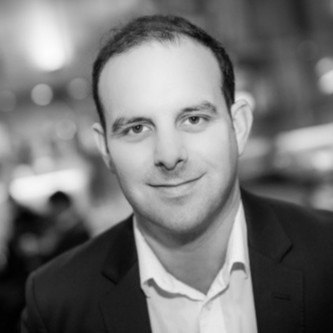
Matthew Gallagher of Chandler Macleod reveals agency's research into employee engagement
This article was produced in partnership with Chandler Macleod.
Care for your employees and they’ll care right back, with higher levels of engagement and respect for the organization. Seems like a simple equation – but here’s the dealbreaker. Authenticity is everything, according to research by Chandler Macleod. And it isn’t one-size-fits-all, with age a big differentiator in what people need to feel engaged.
The recruitment agency’s white paper, The New Era of Employee Engagement, shows three-quarters of Australians are engaged at work – the “upper end of what we’ve typically seen over the years”, says Matthew Gallagher, Chandler Macleod’s national manager, client partnerships.
“The driver of that is interesting,” says Gallagher. “What we’ve seen in the past 12 months, backed up by our data, is people have been surprised by the lengths employers have gone to in their response to the pandemic and the level of care and concern.”
And the more authentic the approach, the better.
“Employees have said, ‘I never thought my leader would talk about their own mental health challenges’, ‘I never thought they would trust me to work from home’. So there has been a lot of respect given to organisations.”
Authenticity also means individualized care and attention. “A quarter of employees still don’t feel their employer genuinely cares about their wellbeing. But anecdotally, clients who do caring well are thinking beyond the employee, to things like ‘do they have family? do they have pets? What are their hobbies?” Taking a personal approach and demonstrating your organisation cares about an employee’s personal circumstances can take your approach to engagement from one based on showing you care about employees, to being experienced as ‘authentic caring’ as it is tailored and personalised.
This is all part of the most significant work-related phenomenon to come out of the pandemic: the focus on mental health, says Gallagher. “The organisations that continue with the wellbeing programs they put in place during COVID are the ones who will benefit in terms of employee engagement going forward.”
Leadership was the second most predictive driver of engagement, and localised team leadership had the most impact - not least in that care and concern component.
Role modelling positive behaviours, listening and responding to individual employee needs, making sure people are doing work that gives them variety and which they perceive to be meaningful, that they have some autonomy and choice in how they complete their work – these all have a big influence on employee engagement, says Gallagher.
Leaders are also important guardians of employee wellbeing. With 72% of employees experiencing an increase in work demand through COVID, leaders should set clear boundaries and expectations around hours, says Gallagher.
They should also foster team connection because relationships with colleagues strongly influence work engagement.
“The online environment can be very structured, so make time in meetings for that informal conversation that typically happens in the office.”
The strongest predictors of engagement relate to an individual’s role; however, different strategies are needed for different age groups.
“Those above 30 have benefited most from an increased work/life balance from remote working. But those under 30 have missed the social aspect. They also face pressures like working in shared housing, or perhaps not being set up with the correct equipment. They’re more focused on career progression than the older cohorts yet are struggling to get that learning and development they would ordinarily benefit from.”
It’s therefore important to give younger workers clarity about their career progression. Talking to individuals about the business’s direction and how their role fits into the bigger picture can help to create a sense of certainty that there is a long-term plan for them.
Younger employees are also missing out on social orientation so it’s vital to create opportunities for connection, mentoring and learning alongside more senior colleagues. “One of our clients identified lower engagement among under 30s and created a reverse mentoring program. They connected junior employees with more senior people to help them navigate technology and implement new processes around remote working.”

Matthew Gallagher
Matthew Gallagher is Chandler Macleod People Insights’ national manager - Client Partnerships based in Sydney and holds a Masters in Organisational Psychology from Manchester Business School. For the past 15 years Matthew has advised clients on matters related to employee engagement, leadership development, career management, organisational change/culture development, and psychological assessment. He currently partners with clients to improve organisational effectiveness within the private sector and at all levels of state, local and federal government.